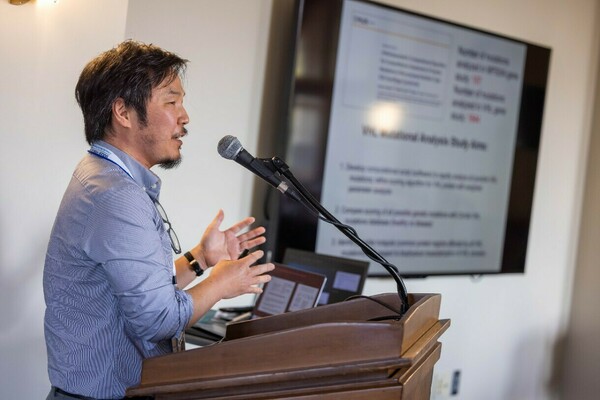Minor Requirements & Curriculum
Program Requirements
Students minoring in Science and Patient Advocacy will be required to complete 15 credit hours of coursework including:

- Two gateway courses
- Rare Disease Advocacy Immersion
- Two elective courses
- Topics in Rare Disease Advocacy and Policy
Timeline
1st year or Fall of 2nd year, complete prerequisites:
Biology I: Big Questions (BIOS 10171) and Biology II: Molecules to Ecosystems (BIOS 10172)
Fall of 2nd or 3rd year: BIOS 40450
Gateway: Clinical Research in Rare Disease (BIOS 40450) (3 credits)
This is the primary course for the minor. This is a three-credit course offered in the fall; required of all students enrolled in the minor. A major goal is to have students work on a clinical research project in class on some rare and/or neglected diseases of major importance. A second important goal of this course is to develop an analogous model(s) for other neglected/infectious diseases.
Fall of 3rd or 4th year: BIOS 40550
Gateway: Topics in Pathobiology: Personalized Medicine (BIOS 40550) (2 credits)
This is the second gateway course required of all students in the minor and offered in the fall semesters. This course introduces current and emerging technologies in scientific research with a specific focus on concepts relevant to precision-based individualized medicine. The overall format for this class will be a detailed discussion of highlighted journal articles relevant to the topic discussed. This class will meet once weekly and will be open to both juniors and seniors enrolled in the minor program. The class will also include graduate students interested in advanced topics of research. Having a class composition of both undergraduate and graduate students is a particular strength of this course, as it maintains a standard of rigor typical of an advanced level class.
Spring of 3rd or 4th year: BIOS 40565
Capstone Course: Topics in Rare Disease Advocacy and Policy (BIOS 40565) (3 credits)
This course is designed for students to integrate the scientific basis of clinical research with patient-centered components of advocacy. Students will conduct clinical research through the assessment of patient medical records, compile data, and analyze the natural history study of rare diseases. In addition, students will develop a comprehensive clinical summary of the medical records. Students will develop a list of resources, patient service organizations, centers of excellence, and clinical trials.
Recommended taking this course after completion of 2 gateway courses:
Rare Disease Advocacy Immersion (BIOS 40451) (1 credit)
Students participate in a community-based experience that incorporates the academic context into advocacy that fulfills a patient, family, or community need. This engages the student in active participation in real-life experiences of patient advocacy and provides a learning experience unique to this program.
Anytime:
2 Electives (6 credits total)
Two courses are required from the list of approved electives in the areas of biology, neuroscience, psychology, ethics, and policy/social justice in medicine. The following elective courses are regularly offered:
- SCPP 30300 - Introduction to Clinical Ethics
- BIOS 30301 - Embryology
- BIOS 30418 - Medical Molecular Genetics
- BIOS 60570 - Section 01: Topics in Cell Biology 3 credits
- BIOS 40436 - Section 01: Intro to Mol and Med Pharma
- BIOS 40419 - Immunology
- BIOS 40203 - Neuroinfectious Diseases
- BIOS 30341- Cell Biology
- BIOS 30455 - Medical Microbiology
- STV 30405 - Section 02: Compassionate Care in Medicine
- STV 29697 - Section 01: How Pharmaceuticals Create Us
- PSYC 43531 - Psychology and Medicine
- SC40350 - Introduction to Hospice and Palliative Care
- BIOS 30344 - Human Physiology
- BIOS 40339 - Human Gross Anatomy
- CHEM 40531 - Hallmarks of Cancer & Therapy
- BIOS 40420 - Mol Epi of Infectious Diseases
- BIOS 30338 - Advanced Neurobiology
- BIOS 40202 - Developmental Neuroscience
- BIOS 40310 - Cancer Immunotherapy
- BIOS 24241 - Molecular Cell Biology
- BIOS 20303 - Fundamental of Genetics
- CHEM 40420 - Principles of Biochemistry
- SCPP 30401 - Medical Counseling Skills
- CSC 33314 - Abled in a Disabled World
Regarding electives: Students can double count two courses from their major and this minor. New courses may be added to the list at the discretion of the Director of the minor.
